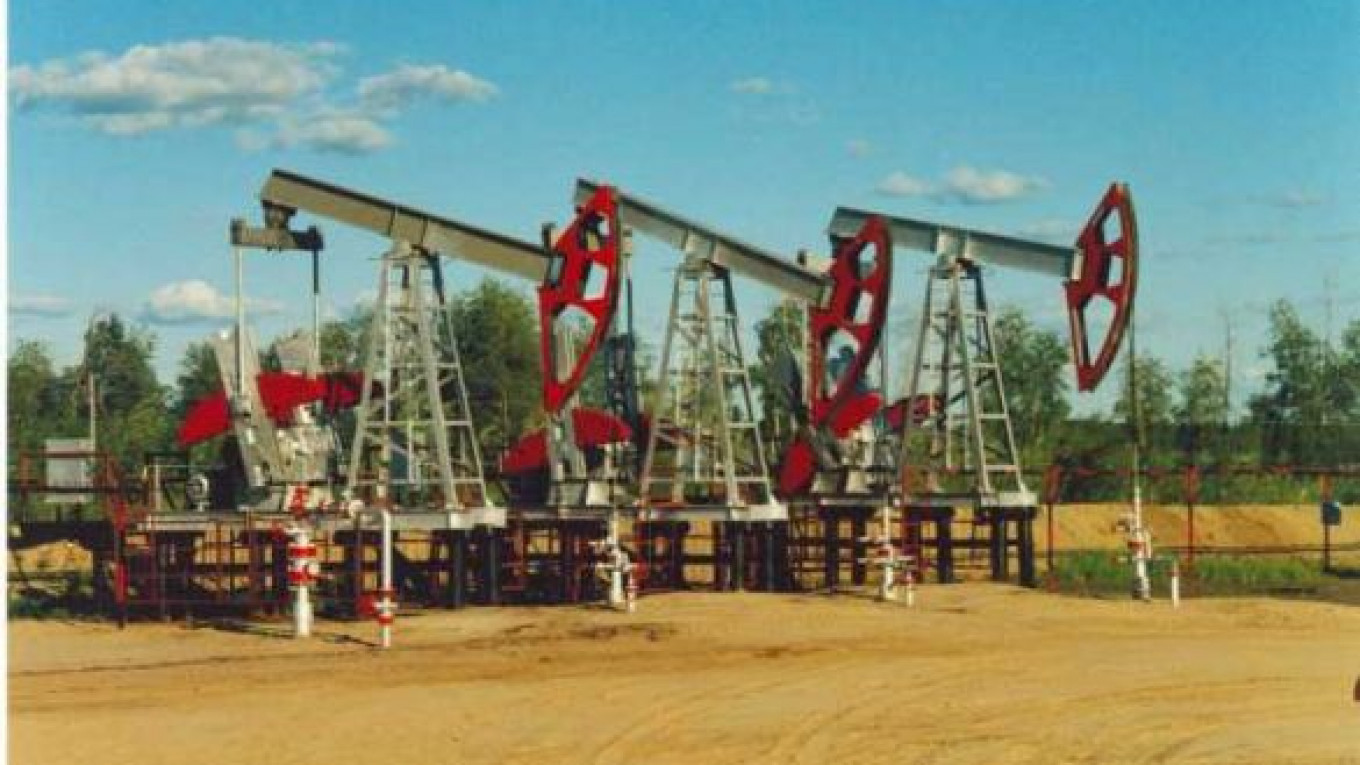LONDON/BAGHDAD — LUKoil has bought oil from Kurdistan, defying Iraq's ban on trade with its independent-minded region, but the Moscow firm has so far avoided the wrath ofBaghdad, which hopes Russians may step in to tap its big fields further south as Westerners bail out.
Exporting oil independently of the central government is the latest of many defiant moves bythe Kurdish regional government, which also signed deals with oil majors like ExxonMobil ofthe United States to develop its resources.
Baghdad has long insisted it has the sole right to export oil. It considers any other business illegal and tantamount to smuggling by the ethnic Kurds in northern Iraq.
Yet LUKoil's Geneva-based trading arm Litasco has become the third company to buy Kurdish condensate, or very light oil, five industry sources told Reuters — following in the footsteps of two of the world's largest trading houses, Trafigura and Vitol.
BLIND EYE
Those earlier deals, in October, provoked an angry response from the Iraqi central government, which said it had the right to "legally pursue all those who participate insmuggling."
But this time, Baghdad seems to be turning a blind eye.
"After checking with concerned parties, we got confirmation that LUKoil has not purchased any kind of crude for the benefit of the KRG," said an official from Iraq's state oil marketer SOMO, referring to the Kurdish Regional Government.
Iraqi government officials declined to comment.
Industry sources told Reuters that Litasco had chartered the tanker Cielo di Napoli to load around 19,000 tons of the Kurdish condensate from the port of Toros at Ceyhan in Turkey. The tanker sailed on Nov. 21.
LUKoil, Russia's No. 2 oil producer, declined to comment.
A spokeswoman for Litasco did not comment on the deal. She said the company "consistently endeavors to meet obligations towards its partners which are strictly in line with all the obligations and commitments of the whole group."
The condensate was bought via the intermediary Powertrans in a public tender, traders andindustry sources said, similar to the procedure Vitol and Trafigura used to buy supplies. Litasco won the tender at a $3.00 discount to naphtha prices, beating competing bids fromTrafigura and Socar, one participant said.
Iraq considerably depends on Vitol and Trafigura for its fuel imports, but there is much more at stake in the LUKoil case, as the company is one of the biggest investors in the country.
Baghdad has said it would like to see Russian and Chinese companies taking over fromExxon, which wants to pull out from southern Iraq's $50-billion West Qurna-1 project as it prefers contract terms available in Kurdistan.
"It's difficult for oil companies to resist the temptation of contracts offered by the Kurds, which represent a prize compared to Baghdad's tough terms," said Ali Shallal, an Iraqi oil analyst and legal expert.
"If LUKoil is targeting Kurdish oil, then now is the best time. Especially since it is favored byBaghdad to fill the gap left by ExxonMobil," said Shallal, who specializes in drafting oil contracts.
TRUCKS GO TO TURKEY
LUKoil plans to invest around $25 billion through a 20-year deal to develop the giant neighboring West Qurna-2 deposit and has said it would be difficult for the company tocommit itself to another huge project.
On Wednesday, it said it would decide by the year-end. Both Qurna projects are key to Iraqi ambitions to at least double output from its huge reserves and produce 6-7 percent of oil inthe world.
Such plans are now being threatened by the pullout of firms such as Exxon and plans byFrench rival Total and Russia's Gazprom Neft to tap Kurdish fields.
West Qurna-2 alone is expected to produce 500,000 barrels per day in 2014, gradually rising to 1.8 million bpd.
The Kurdish regional government, lacking pipeline routes, began sending trucks laden with condensate to Turkey in July as part of an agreement with Ankara. In return, Turkey will export diesel and kerosene. Toros is one of two Turkish terminals that is designed to receive truck tankers.
The Iraqi Kurds and the central government have a long-running dispute over oil payments and exploration, which led to severe export delays this summer when Kurdistan blocked exports over a payment dispute.
The two sides have been unable to agree on an amended hydrocarbons law drafted in 2007.
The Iraqi government fears the increasing independence of Kurdistan could destabilize thecountry. Prime Minister Nuri al-Maliki wrote to U.S. President Barack Obama asking tointervene and dissuade Exxon from going into Kurdistan.
A Message from The Moscow Times:
Dear readers,
We are facing unprecedented challenges. Russia's Prosecutor General's Office has designated The Moscow Times as an "undesirable" organization, criminalizing our work and putting our staff at risk of prosecution. This follows our earlier unjust labeling as a "foreign agent."
These actions are direct attempts to silence independent journalism in Russia. The authorities claim our work "discredits the decisions of the Russian leadership." We see things differently: we strive to provide accurate, unbiased reporting on Russia.
We, the journalists of The Moscow Times, refuse to be silenced. But to continue our work, we need your help.
Your support, no matter how small, makes a world of difference. If you can, please support us monthly starting from just $2. It's quick to set up, and every contribution makes a significant impact.
By supporting The Moscow Times, you're defending open, independent journalism in the face of repression. Thank you for standing with us.
Remind me later.






